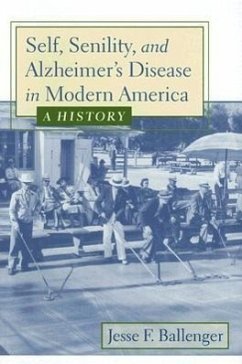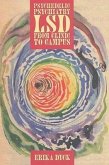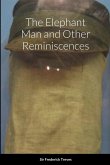Senility haunts the landscape of the self-made man, historian Jesse Ballenger asserts. Here, Ballenger traces the transformation of senility as a cultural category from the late nineteenth century to the late twentieth century, when Alzheimer's disease became increasingly associated with the terrifying concept of losing one's self. During this period, changes in American society and culture complicated the notion of selfhood. No longer an ascribed status, selfhood must now be carefully and willfully constructed-and thus losing one's ability to sustain a coherent self-narrative may be considered one of life's most dreadful losses. Drawing on scientific and popular discourses on aging and dementia, Ballenger explores the significance of dementia as a major health issue and the emergence of gerontology as a science to describe normal aging and distinguish it from disease. In addition, he examines how psychiatry approaches the treatment of senility and follows scientific attempts to understand the brain pathology of dementia.








